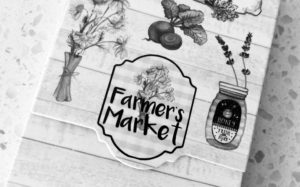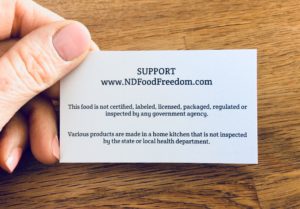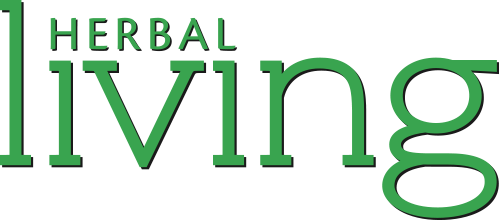No matter where you live or what stage of development your business is in, there will always be rules and regulations you must be aware of. As cities, counties, states, and the federal government take action to protect the public, selling homegrown or homemade goods will continue to be regulated.
UPDATE! March 20, 2018
The state of North Dakota has pulled back the proposed restrictions further limiting the North Dakota Cottage Foods Act. For the time being, the original form of the Act remains in effect for those producers providing goods directly to the end consumer. For now, this is a WIN for those of us selling our produce and homemade goods! However, laws are constantly being changed and someday we may end up seeing some of those previously proposed restrictions. It pays to stay well informed each and every year you do business and always stay protected by purchasing liability insurance.
Here in North Dakota, a general ND Cottage Foods Act was passed in 2017. It’s goal, to allow small producers to sell their goods directly to the consumer with fewer regulations than large-scale farms.
For those operating in farmer’s markets or selling produce, canned goods and baked goods privately, the law allowed more freedom. Our goods could be sold without licensing or inspection. Support www.NDFoodFreedom.com
We were required to inform and educate the consumer that our products were, “…not certified, labeled, licensed, packaged, regulated or inspected by any government agency.” We had to simply post signage stating “Products are made in a home kitchen that is not inspected by the state or local health department.”
The downside to this act was less regulation meant the consumer and the producer, took on the sole responsibility for product safety. As you could imagine, a grower/producer level of cleanliness may not measure up to an end consumer’s level of expected cleanliness and sanitation. This left HUGE gaps in limiting the risks of buying homegrown or prepared items privately or at a local farm stand.
In 2018, the interim rules of the North Dakota Cottage Food Act are under review and new administrative rules are expected to hit the books this year. Not only may producers have to follow more stringent rules, the laws can be more precisely enforced.
DETERMINING WHAT RULES TO FOLLOW
The first step is figuring out what law or set of rules you must follow as a producer. At a recent presentation by Dakota College at Bottineau’s Entrepreneurial Center For Horticulture I was enlightened to a few questions I needed to ask myself. Please note, all points presented are based on the relevant regulations as of January 2018 in the state of North Dakota.
- 1. Do you grow, harvest, pack or hold produce for consumption outside your personal household?
NO – You are not subject to the Cottage Food Law or the Food Safety Modernization Act.
YES – Continue to question 2. - 2. Do you have more than $25,000 in average annual sales over the last 3 years?
NO – Continue to question 3.
YES – You may be subject to the Food Safety Modernization Act given consideration for products that are rarely consumed raw or are processed through a “kill step”. Continue to question 3.
- 3. Do you only sell your products face to face, directly to the end consumer?
NO – This includes sales to hospitals, grocery stores, restaurants etc. You will be subject to following safety guidelines, licensing, regulation and the Food Safety Modernization Act.
YES – The ND Cottage Food Law applies to you.
NORTH DAKOTA COTTAGE FOODS ACT (NDCFA)

A full description of the act as it currently stands can be viewed at http://www.legis.nd.gov/encode/t23c09-5.pdf
It is important to note that the interim guidance document found online was the general rule accepted in 2017. However, this document is currently under review and new details expect to become effective in 2018 as the newly minted administrative rules are approved.
For the most part, raw, uncut fruits and vegetables are accepted products to be sold under the NDCFA. High-acid home canned foods (pH less than 4.6), shelf-stable baked goods, along with a list of other pre-approved items are also acceptable.
Various non-acidified foods (pH greater than 4.6), regardless of the means in which they are packed are not allowed. Testing must be verified by using a calibrated pH meter using the entire preserved food, not just the brine.
A list of unacceptable foods regardless of pH will also be restricted. Items such as pickled eggs & meats, cut fruit or vegetables, candy dipped fruit, juices, meats, raw seed sprouts, dairy products such as butter, cheeses, and yogurt are prohibited.
Perhaps the largest factor in many of the restrictions will be due to foods requiring temperature control for safety. Items such as pesto, freezer jams, flavored oils and breads sold with various toppings will not be approved for sale under this act. A good rule of thumb to follow, if it needs refrigeration – don’t sell it until you find the regulations pertaining to that specific food item.
Rules for selling allowed baked goods requiring refrigeration will be very detailed. Labeling with safe handling and usage instructions will be required. The seller must abide by required storage temperatures up to and at the time of sale, typically transported and maintained frozen. This is to include bakery goods including, but not limited to, cream, custard, cheesecake, pumpkin pies, uncooked dough etc..
As with the rest of the prepared foods, labeling specifics will also be further regulated. A general blanket statement will no longer be enough.
Even the sale of farm flock eggs will require specific selling and handling regulations. Candling, washing of eggs, 45-degree storage temperatures, packaging and labeling of specified handling instructions will become more detailed.
Failing to follow the new, detailed regulations once in place for 2018, can have consequences. If found to not be in compliance, a producer/operator/vendor can be found guilty of a class B misdemeanor in the state of North Dakota.
For further details on the ND Cottage Foods Act, please call or visit your local Health Department – when in doubt, check it out! www.ndhealth.gov/foodlodging
FOOD SAFETY MODERNIZATION ACT (FSMA)
Contrary to popular belief, the Food Safety Modernization Act isn’t just for those producers who sell high volumes of produce. It is in everyone’s best interests general safety precautions are taken when growing food that is to be consumed. However, there are a few questions you must answer to determine if you qualify for exemption from having to be an approved, licensed and regulated producer.
- 1. Do you grow, pack, harvest or hold/store produce?
- 2. Is what you grow for personal consumption only?
- 3. Is any of your produce usually consumed raw?
- 4. Do you sell $25,000 or less annually and sell it direct to consumers within 275 miles of your home?
Most small producers will qualify exempt from FSMA by claiming “yes” to question #4. Perhaps the larger question you should ask yourself is whether or not practicing documentable food safety precautions will allow your business to succeed above other producers.
In most cases, providing and proving safe food practices will! Ultimately, if your food makes someone ill, you could be held liable. For this reason alone, proper safety precautions taken when growing and handling food at harvest are imperative, even if you are technically exempt from FSMA.
Do your research, create a Good Agricultural Practices Food Safety Plan for your business, document and follow it. Log, track and maintain records of what you sell and where. Protect yourself and your business by securing liability insurance coverage.
For more information on FSMA please visit www.fda.gov and look under the FDA Food Safety Modernization Act, Produce Safety Rules. If you need more help in determining your farm business needs, visit and utilize the Decision Trees offered by Cornell. Http://gaps.cornell.edu/educational-materials/decision-trees
INSPECTED, LICENSED & APPROVED
For those not exempt, know and accept there are many regulations you must follow in order to sell your goods. From water testing, inspection requirements, sanitation rules & regulations along with formal food safety management. These are all things that take some work but make your business and it’s products more attractive and safer for the average consumer.
Not only does it make selling at a farmer’s market feasible, you can also expand your business to selling to restaurants and grocers. If marketed properly, the fact you are inspected, licensed and approved can be an awesome selling tool!
Just remember, when in doubt or if you have questions, check with your local Health Department and Food Inspection Unit. They can best inform you of your options and the regulations specific to your location.
WANT TO LEARN MORE?
Do your due diligence! Laws change, so don’t take my word as gospel…go directly to the source! Simply put, stay informed! Attend one of these upcoming workshops and find out what changes may be in store!
All sessions will be held from 1:00pm to 5:00pm. RSVP required at (701) 681-0252.
- March 3: Bismarck-Burleigh Public Health
500 E Front Ave, Bismarck - March 10: Southwestern District Health District Offices
227 16th St. W, Dickinson - April 14: Hampton Inn and Suites
2985 42nd St. S, Grand Forks - April 21: Fargo Cass Public Health District, Oak Room
1240 25th St. S, Fargo - April 28: Lake Region State College, Room 101 and Lab 102 1801
College Drive N, Devils Lake - May 12: Roughrider Center, Diamond Room
2209 Wolves Den Parkway, Watford City - May 26: Quality Inn and Suites
507 25th St. SW, Jamestown
If you have any questions, call Holly Mawby at (701) 681-0252.
#LifeOn25Acres











